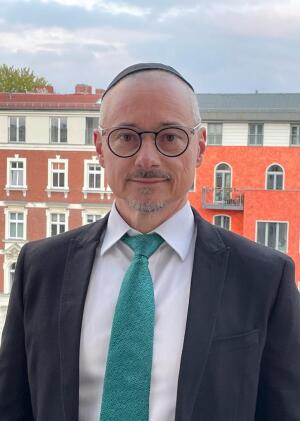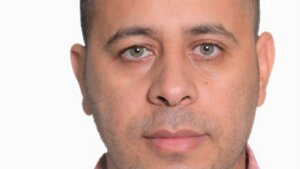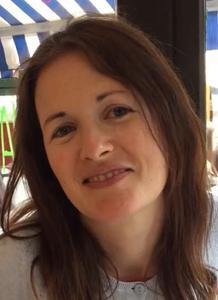Advisory Board
The advisory board of the research network consists of external scholars working in the field of diaspora studies who are interested in an exchange about emerging qualification theses and further research projects in the field of diaspora studies.
-
Dr. Mirosław Borkowski
Prof. Dr. Borkowski is Head of the Department of Law at the Gdańska Szkoła WyższaExternal link and is Editor-in-Chief of the university journal (Zeszyty naukoweExternal link). Prof. Borokowski's scientific interests include the protection of human rights, the protection of national and ethnic minorities with special emphasis on issues of religious law and health protection.
-
Dr. Asher J. Mattern
Dr. Asher J. Mattern
Image: Dr. Asher J. MatternDr. Asher J. Mattern is a research associate at the Institut für Ökumenische und Interreligiöse ForschungExternal link (Institute for Ecumenical and Interreligious Research) at the University of Tübingen. His teaching focuses, on the one hand, on the theory and practice of Jewish law, and, on the other, on the ideas and reflections of rabbinic Judaism unfolded in Jewish hermeneutics and anchored in concrete existence by means of legal practice.
His research can be described as a hermeneutics of Jewish existence in the circle of law and idea, of action and reflection. The significance of the galut, or the question of how Jewish existence is perpetuated in exile and thus in the tension between traditionality, assimilation, and dissimilation, is a central moment of this hermeneutic as a necessary self-reflection of Judaism in modernity. The traditional dialectic of preservation and renewal of the Jewish lifeworld becomes, under conditions of galut, a dialectic of renewal from traditional sources and of productive exchange with the Other in its diversity.
The precarious situation of Jewish existence in modernity not only entails the danger of losing oneself through assimilation, but also leads traditional forces aiming at preserving dissimilation time and again to the paradoxical innovation of rejecting any renewal and seeking protection in the appearance of a supposed authenticity.
Judaism, with its repeated experience of exile stretching over millennia and coming to a head in a special way in modernity, thus offers a variety of categories and dynamics for thinking about different forms and dynamics of diaspora: From the perspective of rabbinic Judaism, diaspora is indeed a universal category: human existence is per se an exiled existence. -
Prof. Dr. Anja Oesterhelt
PD Dr. Anja Oesterhelt
Image: PD Dr. Anja OesterheltPD Dr. Anja Oesterhelt teaches and conducts research at Martin Luther University Halle-Wittenberg in the field of Modern German and General Literary StudiesExternal link. Her work focuses historically on the 18th, 19th and 20th centuries and systematically on the interactions between literature and other knowledge cultures. Her habilitation thesis on the "History of the Homeland"External link is a contribution to diaspora research. Her new research project on emigrant lettersExternal link follows on from this interest.
-
Dr. Nasser Tolba
Dr. Nasser Tolba
Image: Dr. Nasser TolbaDr. Nasser Tolba conducts research in the areas of educational policy analysis, educational history, youth studies, political sociology of higher education, and international higher education. His research focuses on the intersection of education, politics, and religion. Dr. Tolba conducts research on educational issues of Coptic youth in Egypt.
-
Prof. Dr. Glauco Vaz Feijó
Prof. Dr. Glauco Vaz Feijó
Image: Prof. Dr. Glauco Vaz FejióVaz Feijó was a doctoral student in the Postgraduate Program in History at the University of Brasilia (PPGHIS/UnB) and the Institute of Romance Studies at the Friedrich Schiller University of Jena. Vaz Feijo was a lecturer and visiting scholar at the Institute of Romance Studies of the Friedrich Schiller University of Jena and a substitute professor at the Federal University of Bahia. Currently, Vaz Feijó is doing research at the Brazil Center of the University of Tübingen. He has experience in education, history and cultural studies and works mainly on the topics of encounters; race and racism in Brazil and migration from Brazil to Germany. Prof. Glauco Vaz Feijó is a professor at the Federal Institute of Education, Science and Technology of Brasilia (IFB).
-
Dr. Fiona McCallum Guiney
Fiona McCallum Guiney
Image: Fiona McCallum GuineyDr. Fiona McCallum Guiney is a Senior Lecturer in International Relations in the School of International Relations and Director of the Institute of Middle East, Central Asia and Caucasus Studies at the University of St Andrews. McCallum Guiney works on the political role of Christians in the Middle East. Topics include identity, minority rights, church-state-societal relations, Christian-Muslim conflict, interfaith dialogue, migration and the role of the diaspora. She received HERA (EU) funding for her collaborative project on Middle Eastern Christians in Europe.




